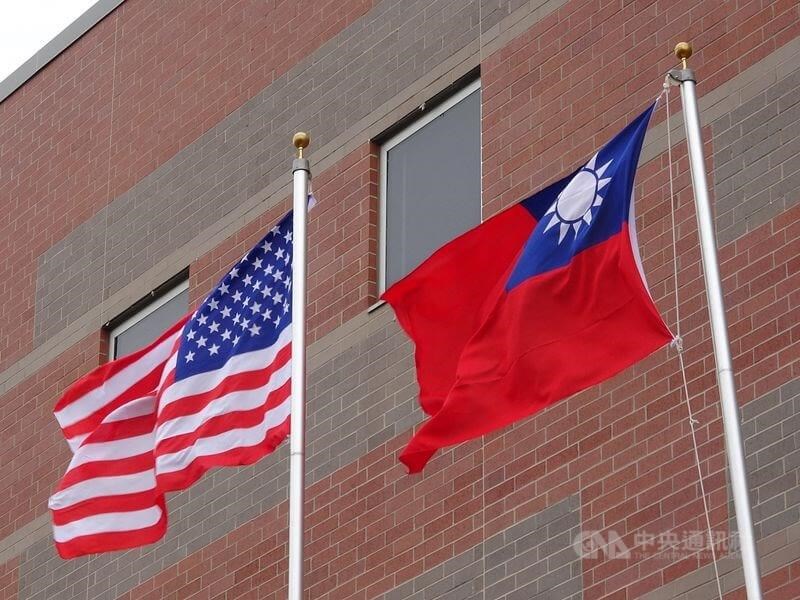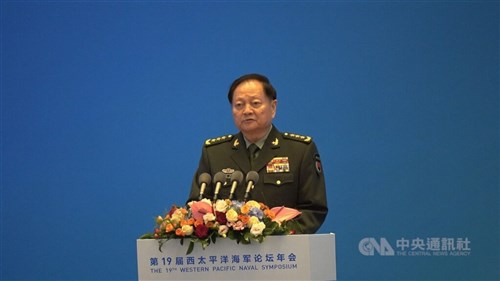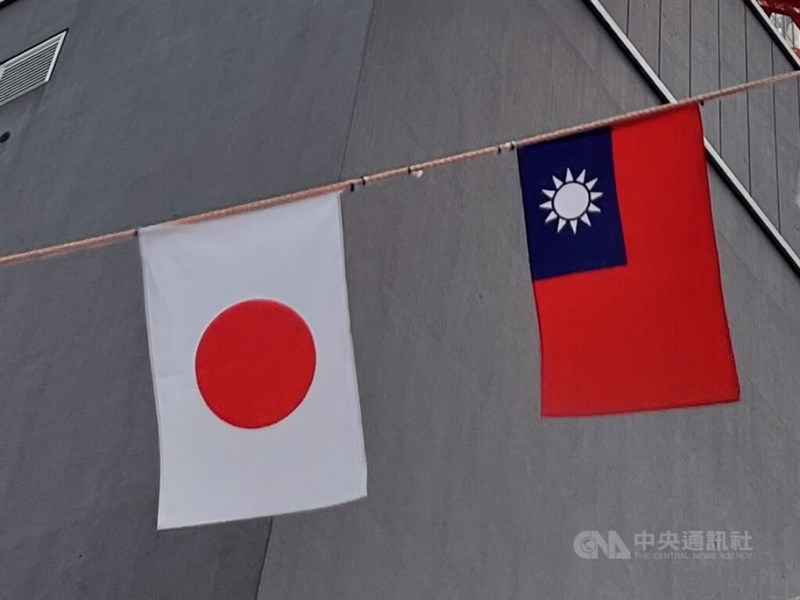ANALYSIS / China-Japan diplomatic spat not what it seems: Taiwan experts

By Chao Yen-hsiang, CNA staff reporter
Japan's first female prime minister, Sanae Takaichi, has faced rising friction with China during her first month in office, with Taiwan unexpectedly pulled into the fray.
During a Diet Budget Committee session on Nov. 7, Takaichi offered what many saw as Japan's most specific public description to date of conditions that might constitute a "survival-threatening situation" -- a legal threshold that allows the Japan Self-Defense Forces (JSDF) to act under the country's 2015 security laws.
"It would not be a survival-threatening situation if it's just lining up civilian ships to make passage difficult," she said of a possible Chinese blockade around Taiwan.
"But if it's warships with the use of military force, then I think it may count," she said, stressing that the government would evaluate all information and make decisions case by case.
Beijing reacted sharply, headlined by China's Consul General in Osaka, Xue Jian (薛劍), who wrote in a since-deleted post that Takaichi should be "decapitated."
Days later, China discouraged its citizens from traveling to Japan and suspended Japanese seafood imports on grounds of radiation concerns, feeding a narrative that "Takaichi's pro-Taiwan remarks have infuriated Beijing."
But four Taiwanese experts told CNA that this narrative gets both Japan and China wrong.
No shift, only acceleration
Raymond Sung (宋承恩), a director on the board of the Taiwan National Security Institute, said China "obviously blew Takaichi's remarks out of proportion intentionally."
He said two deliberate distortions were at play.
First, Beijing ignored that Takaichi's answer concerned Japan's legal criteria for a "survival-threatening situation," not a commitment to defend Taiwan.
Second, it neglected to say that the JSDF would take action only for (collective) self-defense, primarily to support U.S. Forces in Japan under the U.S.-Japan alliance, and not to fight on Taiwan's behalf.
"This suggests China deliberately calculated to escalate this into a diplomatic crisis," Sung said.
Also, Japanese politicians such as former Prime Minister Taro Aso and former Vice Defense Minister Yasuhide Nakayama made statements in 2021 similar to Takaichi's, according to Sung.
"There is no way that China was unaware of this," he said.
If Takaichi went too far, Sung said, "it was only in citing such a specific scenario," noting that she later pledged to avoid giving "specific hypothesized cases" in the future.
Kuo Yu-jen (郭育仁), vice president of the Institute for National Policy Research, also rejected claims that Takaichi had misspoken.
Her response, he said, reflected Japan's assessment of a sharply worsening regional security environment, characterized especially by China's accelerating military posture.
Kuo said the prime minister's remarks were prompted by a very specific question from opposition lawmaker Katsuya Okada, but they also align with Tokyo's broader policy direction.
"This is not a policy shift but policy acceleration," he said. "Japan can no longer afford slow adjustments, because China is changing even faster."
Manifesting those changes are Takaichi's intention to update Japan's three key security documents -- the National Security Strategy, National Defense Strategy, and Defense Buildup Program -- by 2026, a full year earlier than originally scheduled.
These revisions, Kuo predicted, may form the first basis for official security cooperation between Taiwan and Japan since diplomatic ties were severed in 1972.
Unwritten rule revealed
Chen Yu-hua (陳宥樺), an assistant professor at Akita International University, said Takaichi's remarks "do not signal an essential shift."
Instead, they simply made public what Japanese political elites have privately agreed upon for years: that Japan would intervene -- and should intervene -- in a Taiwan Strait conflict for the sake of its own security.
"She merely articulated Japan's unwritten rule," he said, attributing her directness to her "perhaps too candid a personality."
Chen argued that Beijing's treatment of Takaichi differed from its dealings with previous prime ministers, likely due to her pronounced conservative stance and perceived closeness to former U.S. President Donald Trump.
China's "pressure tests" began even at the APEC summit in South Korea in early November, he said, pointing to a brief and frosty handshake between Xi Jinping (習近平) and Takaichi ahead of their bilateral talks.
A Kyodo News survey conducted Nov. 15-16 found Takaichi's approval rating at 69.9 percent, up 5.5 points from October, while 48.8 percent of respondents backed her position that a Taiwan contingency may constitute a survival-threatening situation, versus 44.2 percent against.
"Most Japanese would have rejected this idea, or never even considered it, over the past 10 years," Chen said. "The poll result is striking."
Stay alert
Philip Yang (楊永明), a professor at Chinese Culture University, offered the most cautious interpretation.
He said Takaichi's remarks suggested the Liberal Democratic Party's (LDP) conservative wing wants Japan to play a more assertive role in security issues under the "Japan is back" agenda first framed by the late Shinzo Abe.
This language signals support for a broader conservative agenda, one that includes loosening legal restrictions on JSDF operations and revisiting Japan's Three Non-Nuclear Principles, particularly the ban on allowing U.S. nuclear weapons into Japan, in a bid to seek deeper U.S. security commitments, Yang said.
Multiple Japanese media outlets have reported senior officials saying that Takaichi wants to review the Three Non-Nuclear Principles because they could weaken U.S. nuclear deterrence. Takaichi endorsed the same idea during her 2024 LDP leadership bid.
Yang cautioned, however, that such moves remain politically difficult. The architect of the non-nuclear principles, former Prime Minister Eisaku Sato, won the 1974 Nobel Peace Prize, and an anti-nuclear Japanese group received the award in 2024.
Yang also asserted that Japan will not fight to defend Taiwan, nor is the JSDF's strength sufficient to deter China. He, therefore, urged President Lai Ching-te (賴清德) to stay cautious rather than "respond too enthusiastically" to statements framed around a Taiwan emergency.
"Japan is unlikely to defend Taiwan, and Taiwan's priority should be not to get itself into trouble," he said.
Enditem/ls
-
![U.S. policy unchanged despite Taiwan omission in defense strategy: Analysts]() U.S. policy unchanged despite Taiwan omission in defense strategy: AnalystsThe absence of Taiwan in the Pentagon's recently released 2026 National Defense Strategy (NDS) has raised concerns about the United States' commitment to the island nation's defense.02/07/2026 04:31 PM
U.S. policy unchanged despite Taiwan omission in defense strategy: AnalystsThe absence of Taiwan in the Pentagon's recently released 2026 National Defense Strategy (NDS) has raised concerns about the United States' commitment to the island nation's defense.02/07/2026 04:31 PM -
![Xi's military purge raises Taiwan miscalculation risk: Experts]() Xi's military purge raises Taiwan miscalculation risk: ExpertsChinese President Xi Jinping's (習近平) ongoing purge of senior military leaders, most recently targeting top general Zhang Youxia (張又俠), could help him consolidate power and potentially increase the risk of strategic miscalculation over Taiwan, according to experts.01/27/2026 09:31 PM
Xi's military purge raises Taiwan miscalculation risk: ExpertsChinese President Xi Jinping's (習近平) ongoing purge of senior military leaders, most recently targeting top general Zhang Youxia (張又俠), could help him consolidate power and potentially increase the risk of strategic miscalculation over Taiwan, according to experts.01/27/2026 09:31 PM -
![Japan vote a 'high-stakes gamble' of importance to Taiwan: Experts]() Japan vote a 'high-stakes gamble' of importance to Taiwan: ExpertsWidely seen as the most Taiwan-friendly Japanese prime minister since Shinzo Abe, Sakae Takaichi dissolved the House of Representatives on Friday three months after taking office, setting the stage for a snap election on Feb. 8 as she attempts to consolidate her leadership.01/24/2026 05:55 PM
Japan vote a 'high-stakes gamble' of importance to Taiwan: ExpertsWidely seen as the most Taiwan-friendly Japanese prime minister since Shinzo Abe, Sakae Takaichi dissolved the House of Representatives on Friday three months after taking office, setting the stage for a snap election on Feb. 8 as she attempts to consolidate her leadership.01/24/2026 05:55 PM
-
Society
Driver dead, 2 injured as van loses control, crashes in Taipei
02/25/2026 10:23 AM -
Business
U.S. dollar down in Taipei trading
02/25/2026 10:13 AM -
Business
Taiwan shares open higher
02/25/2026 09:18 AM -
Society
Taiwan headline news
02/25/2026 08:10 AM -
Society
Taiwan releases forced labor prevention guide for businesses
02/24/2026 09:39 PM


